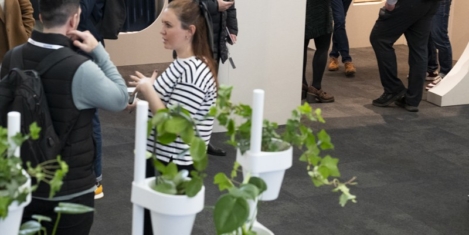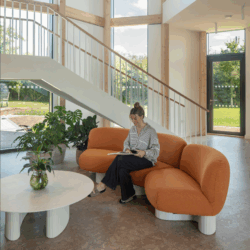To provide the best experiences, we use technologies like cookies to store and/or access device information. Consenting to these technologies will allow us to process data such as browsing behaviour or unique IDs on this site. Not consenting or withdrawing consent, may adversely affect certain features and functions.
The technical storage or access is strictly necessary for the legitimate purpose of enabling the use of a specific service explicitly requested by the subscriber or user, or for the sole purpose of carrying out the transmission of a communication over an electronic communications network.
The technical storage or access is necessary for the legitimate purpose of storing preferences that are not requested by the subscriber or user.
The technical storage or access that is used exclusively for statistical purposes.
The technical storage or access that is used exclusively for anonymous statistical purposes. Without a subpoena, voluntary compliance on the part of your Internet Service Provider, or additional records from a third party, information stored or retrieved for this purpose alone cannot usually be used to identify you.
The technical storage or access is required to create user profiles to send advertising, or to track the user on a website or across several websites for similar marketing purposes.
 The UK Cabinet Office has published updated functional guidance titled Managing Surplus Government Property, setting out how government departments should identify, evaluate and dispose of surplus real estate within the central government estate. The document was released on 10 November 2025. The guidance replaces the earlier Guide for the Disposal of Surplus Land and reflects a broadened scope, placing greater emphasis on reviewing multiple options and combining factors when considering disposal or reuse of property assets. (more…)
The UK Cabinet Office has published updated functional guidance titled Managing Surplus Government Property, setting out how government departments should identify, evaluate and dispose of surplus real estate within the central government estate. The document was released on 10 November 2025. The guidance replaces the earlier Guide for the Disposal of Surplus Land and reflects a broadened scope, placing greater emphasis on reviewing multiple options and combining factors when considering disposal or reuse of property assets. (more…)


































October 23, 2025
There’s a simpler, more natural and diverse approach we can take to workplace design
by Peter Fisher • Comment, Workplace design